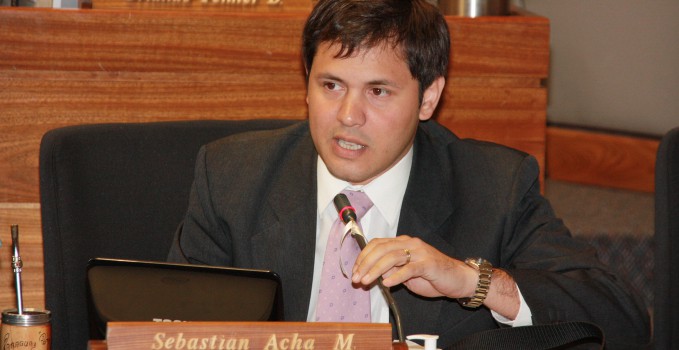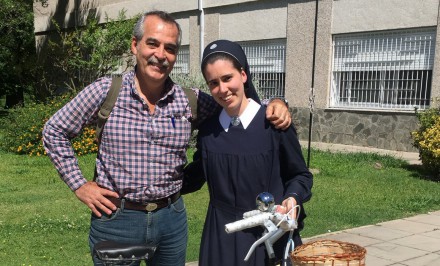Today, Sebastián Acha, from Asunción, Paraguay answers: He is a former leader of the Secondary Boys’ Youth, during his time; he is the founder of Patria Querida [Beloved Nation] (a political party that was born from Schoenstatt, and a former two term member of the national Chamber of Deputies •
Six months into the pilgrimage through the second century of the covenant of love… what is your dream for this Schoenstatt in who we are and where we find ourselves in the church and in the world, and in our mission?
I cannot imagine the Church without Schoenstatt and a Schoenstatt outside of the Church. Father Kentenich’s road was that of transformation from its inner-self towards a Movement that follows this example. Leave behind the mechanism and easy decisions, touching but short-termed. Every shrine is every Christian’s hall of inner mirrors. Here is where change is forged, not by external deeds as extraordinary as they may seem.
In order to fulfill this dream, what do we need to avoid or leave behind?
We should avoid the short road, which gives instant satisfaction because it only reaches the periphery of the problems. To present works and to offer our time should not be only to live experiences that make us happy and fill us with joy for a weekend or two. We should walk within that “great inner space” of which Father Kentenich spoke and to find our miseries, face them, accept them and offer them.
In order to fulfill this dream, what practical steps do we have to take?
Schoenstatt is a road whose first step is self-knowledge. Sadly we know more about the life of others than of our own. A covenant of love without inner examination, without commitment of life and without getting involved in a society in which the voice of God calls us by name will only be an empty act in which we will surely find happiness, but it will be fleeting, weak, and superficial. The first concrete step that we have to take is to face our own existential crisis: to know and to face our doubts, to secure our convictions and to defend our truths. If we have still not done it, we have a beautiful time to give it to ourselves and to do it today.
Original: Spanish. Translation: Celina M. Garza, San Antonio, TX USA














